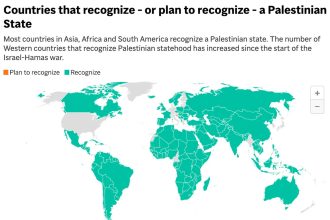The World Animal Protection (WAP), an international organisation, has warned that by 2050, antibiotic-resistant infections could claim no fewer than 10 million lives globally each year if urgent action is not taken.
Dr. Patrick Mvinde, Research and Planning Manager at WAP, issued the warning during a workshop for journalists in Abuja on Thursday. The event, themed “Implications of Industrial Animal Farming in Nigeria,” was organised by the Health of Mother Earth Foundation (HOMEF), a Civil Society Organisation (CSO).
Mvinde said that 1.27 million people already die annually from infections untreatable by existing antibiotics, blaming the trend largely on industrial farming practices.
He explained that industrial farming involves raising large numbers of animals, mainly chickens, pigs, and cattle, under intensive, confined, and overcrowded conditions.
“Of the 80 billion animals raised globally, about 75 per cent are farmed this way,” he said. “Lack of space leads to stress, deformities, and movement problems. Due to genetic selection, market weight for broilers is achieved in as few as 40 days. This rapid weight gain strains vital organs such as the heart and lungs, causing severe joint pains and mobility issues.”
Mvinde added that three-quarters of all antibiotics used globally are administered in farming, especially in factory farming systems, with residues often entering the food chain and the environment, thereby accelerating antibiotic resistance in humans.
He also linked industrial farming to zoonotic diseases such as Avian Influenza and Swine Flu, warning that such systems increase the risk of emerging pandemics, citing COVID-19 as an example.
Mvinde urged governments, policymakers, and the private sector to urgently rethink food production models. “We cannot afford to wait until antibiotic resistance becomes an uncontrollable global health crisis. Authorities must enforce strict regulations on antibiotic use in farming, promote humane animal welfare standards, and empower smallholder farmers to produce healthy food sustainably,” he said.
Also speaking, Mr. Mayowa Shobo, Programme Manager at HEDA Resource Centre, cautioned against the unchecked entry of global industrial farming corporations into Africa.
He cited a study conducted in five Nigerian states showing that industrial farming adversely affects human health, the environment, and the socio-cultural fabric of host communities.
“Industrial farming often involves clearing vast tracts of land, disrupting ecosystems, and undermining climate change mitigation efforts. While these farms create some jobs, opportunities are selective, wages are low, and land decisions are made without genuine consultation. Women and poorer groups are frequently excluded from the benefits, and grievances are rarely addressed,” Shobo said.
He called on the government to prioritise public health and climate resilience by investing in healthcare, flood control, and early warning systems while strengthening local food production through seed distribution, input supply, and protection of smallholder farmland.
NAN









